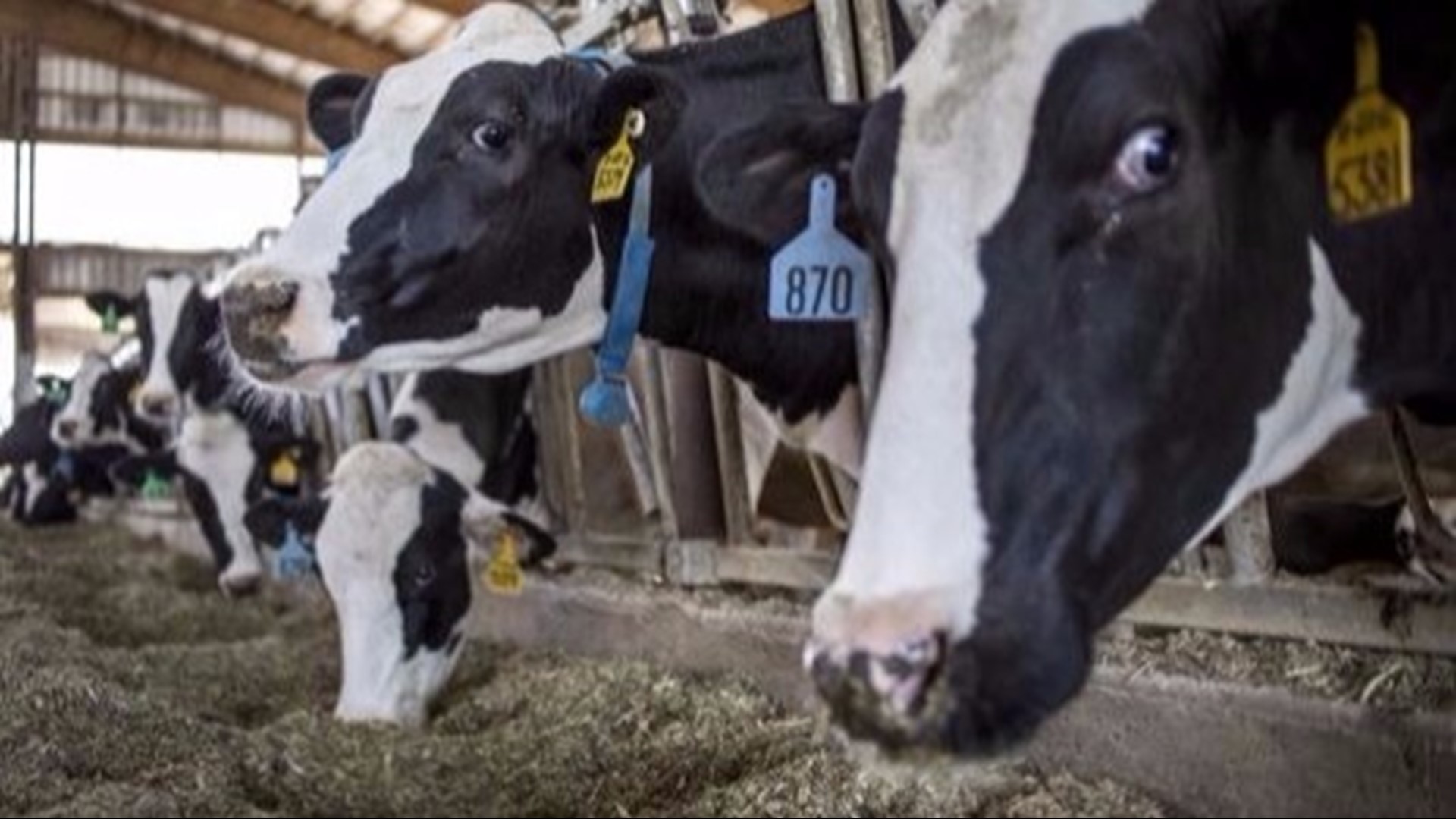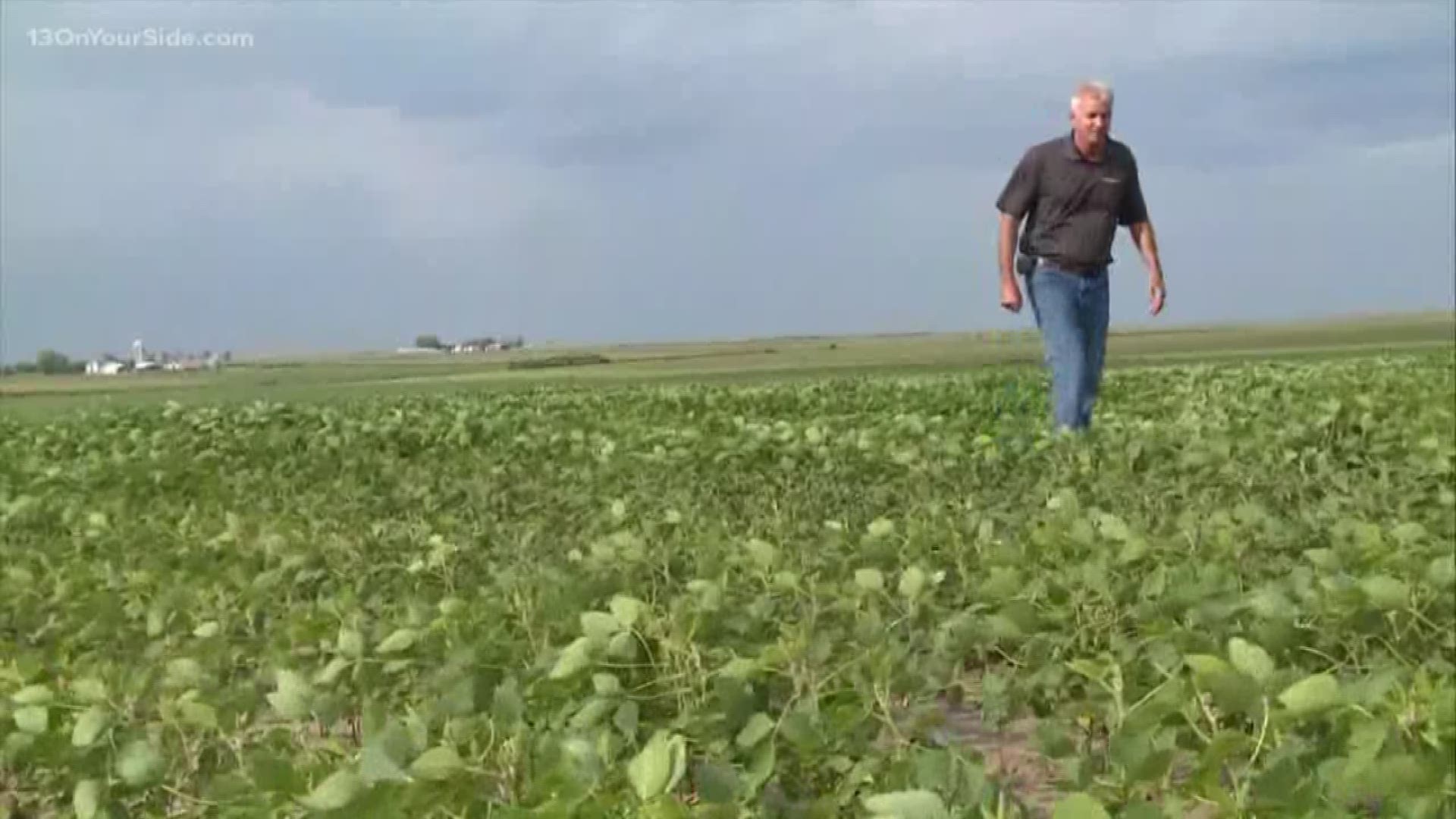GRAND RAPIDS, Mich. — (GRBJ) - Milk production remains uninterrupted as more and more farmers are going out of business in Michigan.
Some dairy farmers are forced to leave the industry because it is no longer financially beneficial, but nonetheless, dairy production is increasing, keeping the No. 1 sector of the agricultural industry thriving.
As of Jan. 21, there are 1,254 permitted dairy farms in the state, according to the Michigan Department of Agriculture and Rural Development. That is a decline from five years ago when there were 1,927 permitted farms.
Barbara Koeltzow, dairy section manager for MDARD, said the root cause of the issue is a worldwide oversupply of dairy products. She said the European Union typically has subsidies to provide its dairy farmers, but the U.S. government usually does not subsidize its dairy farmers.
“Much like the rest of the nation, 2019 really saw a larger-than-usual percentage of farms going out of business,” she said. “Michigan is basically mimicking what is going on in the rest of the nation because the prices paid for milk compared to the cost of inputs like feed, electricity, fertilizers and replacing equipment have been so depressed that it is causing farms to go out of business.”
Despite farms closing, Koeltzow said Michigan leads the country in the amount of milk produced per herd, which is around 26,600 pounds annually.
Koeltzow said nationally, Michigan’s dairy industry is ranked sixth in total milk produced per year. The state’s dairy farmers produce about 11.4 billion pounds of milk per year.
“While the number of dairy farm permits has dropped, the state of Michigan didn’t see a reduction in total cow numbers, what they call Michigan’s overall dairy herd,” said Allison Miller, communication manager for the Michigan Milk Producers Association. “There aren’t more individual herds in Michigan. What happened is that Michigan’s overall herd, divided up between all farms in the state, has more cows than the year prior.
“When a dairy farm makes the difficult decision to close, they may sell their cows to a neighboring farm still in operation. In addition to this shuffling of cows, the increase in the overall herd size could be due to some farms in the state increasing their individual herd size. Dairy farming is still very much a family business, as around 97% of all dairy farms are family owned, often by many generations of the same family.”
According to Ty Kalaus, deputy regional director for the U.S. Department of Agriculture’s National Agricultural Statistics Service Michigan Field Office, as of Jan. 1, 2019, the dairy herd was 422,000 heads in the state. The USDA NASS reported there were 385,500 heads in 2014.
Some larger size dairy farms can take on more cows after some farmers have decided to leave the industry because of the economy of scale. Koeltzow said because of the size of farms, farmers are able to influence their vendors and get price breaks for the products they need to operate their business.
“They get the benefit of the economy of scale because they can say, ‘I have this large amount of milk, what can you do for me to secure my business?’” she said. “These vendors are the equipment dealers, feed companies, milk haulers and truckers, anyone they do business with. They can negotiate a reduced price because of the size of their operation.”
This story originally appeared in the Grand Rapids Business Journal. To find similar content, pick up a copy or find more on their website.
RELATED VIDEO:
Other GRBJ stories featured on 13 ON YOUR SIDE:
►Make it easy to keep up to date with more stories like this. Download the 13 ON YOUR SIDE app now.
Have a news tip? Email news@13onyourside.com, visit our Facebook page or Twitter. Subscribe to our YouTube channel.


